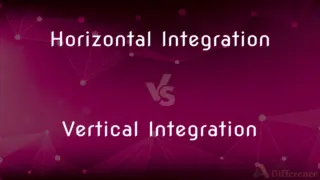True Friend vs. Best Friend — What's the Difference?
Edited by Tayyaba Rehman — By Fiza Rafique — Published on November 27, 2023
A True Friend is someone who’s genuinely there for you, valuing honesty and loyalty. A Best Friend may be the closest among friends, but not necessarily embody the same depth of trust.

Difference Between True Friend and Best Friend
Table of Contents
ADVERTISEMENT
Key Differences
A True Friend signifies someone with whom you share a genuine bond, rooted in trust, understanding, and mutual respect. On the other hand, a Best Friend can simply denote the person you're closest to among your circle of friends, irrespective of the depth or length of the bond.
True Friends are those individuals who stand by you in your highs and lows, offering unconditional support. A Best Friend, while special and dear, might be categorized based on shared experiences or the frequency of interactions rather than profound emotional connections.
One can argue that a True Friend prioritizes sincerity, loyalty, and authenticity in a relationship. Meanwhile, a Best Friend is sometimes designated based on time spent together, shared hobbies, or mutual friends, and doesn’t always imply the depth of connection a True Friend might offer.
The title of True Friend is often earned over time, through acts of trustworthiness, understanding, and shared values. In contrast, Best Friend, as a term, can sometimes be used more casually, indicating the person you spend the most time with or know the most about, without necessarily hinting at a deeper bond.
Comparison Chart
Basis of Relationship
Rooted in trust, understanding, and mutual respect.
Often based on shared experiences or frequency of interactions.
ADVERTISEMENT
Depth of Connection
Emphasizes a deep emotional bond.
May or may not imply a profound emotional connection.
Designation Over Time
Earned over time through trustworthiness and shared values.
Often based on duration of the friendship or shared activities.
Implication
Always implies depth and sincerity in the relationship.
Doesn’t necessarily imply the same depth as a True Friend.
Usage in Language
More about quality of the relationship.
More about rank or proximity among friends.
Compare with Definitions
True Friend
A person with genuine care, loyalty, and trustworthiness.
Jane is a True Friend; she's always there when I need her most.
Best Friend
An individual you share the most memories and experiences with.
We've traveled the world together; he truly is my Best Friend.
True Friend
Someone who stands by you without any ulterior motives.
During my toughest times, I realized who my True Friends were.
Best Friend
Someone you spend a significant amount of time with.
We hang out every weekend; she's my Best Friend.
True Friend
An individual who supports you unconditionally.
In the face of adversity, a True Friend never wavers.
Best Friend
The person you're closest to among all your friends.
My sister is not just family, she's my Best Friend.
True Friend
A companion who values honesty and understanding in a relationship.
A True Friend will tell you the truth, even when it's hard to hear.
Best Friend
A companion you share a deep bond with, often rooted in shared activities.
From soccer practice to movie nights, he's been my Best Friend through it all.
True Friend
Someone whose bond with you transcends time and distance.
Even though we live miles apart, our bond as True Friends remains unbroken.
Best Friend
The first person you think of sharing news or secrets with.
I couldn't wait to tell my Best Friend about my promotion.
Common Curiosities
What signifies a True Friend in a relationship?
A True Friend signifies genuine care, loyalty, and trustworthiness in a relationship.
Is the term Best Friend based on the duration of friendship?
Often, but not necessarily. Best Friend can denote closeness based on shared experiences or interactions.
What’s the primary difference between a True Friend and a Best Friend?
A True Friend emphasizes depth and sincerity, while Best Friend emphasizes closeness or rank among friends.
Can someone have multiple True Friends?
Yes, one can have multiple individuals in their life who offer genuine care and loyalty.
Can a family member be considered a True Friend or Best Friend?
Absolutely. Family members can often be True Friends or Best Friends based on shared bonds and experiences.
Is a Best Friend always the person you spend the most time with?
Not necessarily. It can be about emotional closeness, not just time spent together.
Do True Friends always agree on everything?
No, but they approach disagreements with understanding and respect.
Can a Best Friend also be a True Friend?
Yes, a Best Friend can also embody the qualities of a True Friend.
Do shared experiences always make someone a Best Friend?
While shared experiences can strengthen bonds, they don't automatically make someone a Best Friend.
How can you identify a True Friend from a Best Friend?
A True Friend is identified by depth of connection and loyalty, while a Best Friend might be identified by closeness or shared activities.
Is it common for people to have more than one Best Friend?
Yes, people may have different Best Friends in different phases of life or contexts.
What role does trust play in defining a True Friend?
Trust is foundational for a True Friend, emphasizing reliability and sincerity.
Can Best Friend sometimes be used casually in language?
Yes, sometimes it’s used to indicate someone you’re currently close to or spend time with, without implying depth.
Can the terms True Friend and Best Friend be used interchangeably?
While there's overlap, they emphasize different aspects of a relationship, so they're not always interchangeable.
Is the title of True Friend earned over time?
Often, as it emphasizes trustworthiness, mutual respect, and shared values.
Share Your Discovery

Previous Comparison
Horizontal Integration vs. Vertical Integration
Next Comparison
Hydrochloric Acid vs. Sulfuric AcidAuthor Spotlight
Written by
Fiza RafiqueFiza Rafique is a skilled content writer at AskDifference.com, where she meticulously refines and enhances written pieces. Drawing from her vast editorial expertise, Fiza ensures clarity, accuracy, and precision in every article. Passionate about language, she continually seeks to elevate the quality of content for readers worldwide.
Edited by
Tayyaba RehmanTayyaba Rehman is a distinguished writer, currently serving as a primary contributor to askdifference.com. As a researcher in semantics and etymology, Tayyaba's passion for the complexity of languages and their distinctions has found a perfect home on the platform. Tayyaba delves into the intricacies of language, distinguishing between commonly confused words and phrases, thereby providing clarity for readers worldwide.












































